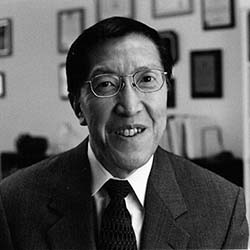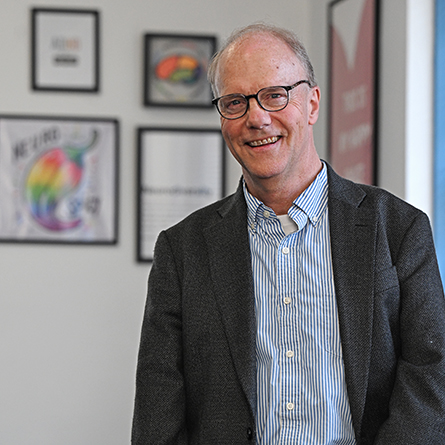
Disarming biases and microaggressions
Recognizing the pervasiveness of microaggressions—and their cumulative impact on people from marginalized groups—is an essential first step to disarming biases at the personal, institutional and cultural levels, Dr. Derald Wing Sue, a professor of psychology at Columbia University, told more than 100 Connecticut College students, faculty and staff at a public lecture and workshop Oct. 23.
“Everyone commits racial, gender, sexual orientation, sexual identity blunders,” said Sue, a pioneer in multicultural psychology, microaggression theory, racial dialogues and multicultural counseling. “It’s how you recover—not how you cover up—that becomes very important.”
Sue defined microaggressions as “the everyday slights, indignities, putdowns and insults that people of color [and other marginalized groups] experience in their day-to-day interactions with well-intentioned individuals who are unaware that they have engaged in a demeaning, offensive type of action.”
During his talk, “Microaggressions as Toxic Rain in Academia,” Sue shared powerful anecdotes from his research and his own experiences, both with students of color and as an Asian-American person himself, to illustrate the impact of microaggressions at college and universities. Following the lecture, Sue led a workshop for faculty and staff on how to have challenging conversations and recognize and address microaggressions in the classroom and student support settings.
“Microaggressions truly are a part of everyday life for so many people of underrepresented and historically marginalized identities,” said Connecticut College Dean of Institutional Equity and Inclusion John McKnight.
“We were so pleased to welcome Dr. Sue to lead a conversation on this topic for our community. His scholarly work has helped us better recognize the cumulative effects of daily race-based insults and to understand this phenomenon as a troubling and pervasive form of modern racism. I am grateful that his newest work is providing some tools for disrupting bias and moving beyond the interpersonal to look more intently at structural forms of racism.”
The event was hosted by Connecticut College and the United States Coast Guard Academy, where Sue also gave a lecture. It is the first in a new social justice education series and part of The Agnes Gund ’60 Dialogue Project at Connecticut College, which aims to build a generation of leaders capable of respecting and expressing a broad range of divergent ideas and opinions.

